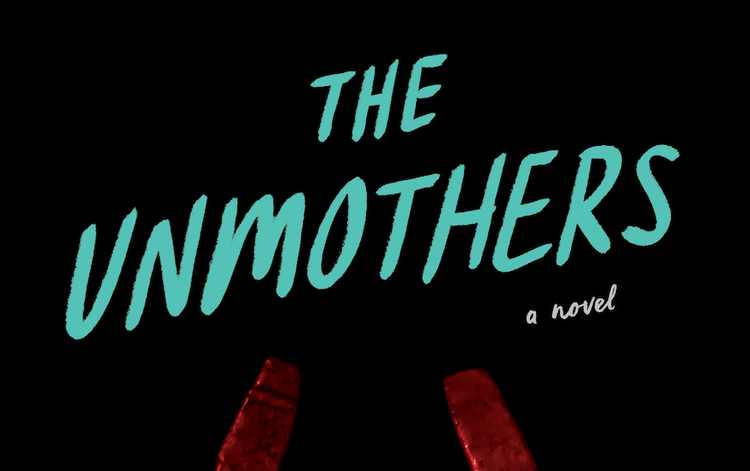Liza Groen Trombi Asks Better Questions

Liza Groen Trombi isthe Publisher and Editor-in-Chief of Locus magazine. A life-long reader of science fiction and fantasy, she studied Spanish literature, history, and translation at SFSU and copyediting and line-editing at Editcetera before joining the magazine in early 2003. She has been Editor-in-Chief since 2009. She also participates in convention panels and awards juries, runs the Locus Awards Weekend and a quarterly writing workshop, publishes books with Locus Press, and serves as board president of the Locus Science Fiction Foundation. She has won four Hugo Awards. She lives in the Bay Area with her two daughters.
Locus Magazine has been running since 1968, making 2023 it’s fifty-fifth year in print. What do you think has contributed to the longevity of the publication?
Locus has been a labor of love for a lot of different people, and in a lot of different ways. When Charles and his friends first ran out a single-page Locus on a mimeograph, as a ‘zine to support the 1971 Boston Worldcon, he realized he really enjoyed doing it – that’s a key moment. He continued with it after the others dropped off, growing the mag by inviting fans and volunteers to write and contribute art and famously to collate the magazine at his house, bribing people with big spaghetti dinners, and later by adding employees once Locus started to get some advertising revenue.
Charles died almost 14 years ago, and it’s continued to be a labor of love for the staff and everyone involved – this enthusiastic team of editors, writers, artists, and fans. It’s never really paid anyone enough to live comfortably in the Bay Area, and yet even with my 20 years with the magazine, I’ve got three employees with longer tenure than me, out of six of us. That speaks volumes about the dedication of the staff.
But, oh, the subject matter! What cool content we’ve been able to work with, write about. Interviewing the minds that build all these amazing worlds we get to share, writing about the industry, getting to see all the books… Everyone who works here loves SFF, loves reading, writing, and editing, and is excited to share everything about it with our readers: the books and stories, the authors, the art, the conventions, the business, and the community.
In addition to being Locus’ fifty-fifth birthday, next year will mark your twentieth year on the Locus team (congratulations!). What have you learned during your time with the magazine?
More than I can ever put on paper, probably! The SFF community is a wild and wonderful group of imaginative people, and they never fail to surprise and amaze me. I’d say the most important thing I’ve learned in the last 20 years – period – is to be as honest as I can, all the time; there’s no room in this field, or in life really, for anything else.
What else… There is always someone prophesying the doom of the field; they may have a point but their prediction is probably wrong. It hasn’t come true yet! And the best advice I’ve seen given to any writer is “just keep writing.” That will see you through most difficult times. Writing is a hard profession, and you need to find joy in it, on your own.
Locus is a hub of genre community news, collecting stories about publishers, awards, conferences, publishing rights, deaths, and so much more. You encounter a massive volume of information every day — you’ve mentioned elsewhere that Locus receives as many as 80-100 emails in an hour. How do you process that avalanche into such a concise and informative package?
Practice, practice, practice. We have a lot of systems to gather info, an amazing senior editor who sifts through hundreds of emails every day pulling out news and all the important bits and bobs (Tim Pratt – we all bow down to his speed and competence), another who indexes all of our incoming books, many of which we hear about in email at this point (Carolyn Cushman), another who is constantly chasing up new titles and hunting down info (Arley Sorg)… and we also know we aren’t going to cover everything, catch every bit of news. So then a little self-compassion helps a lot.
Locus features reviews of short genre fiction as well as books and films. Why are reviews vital to the genre fiction ecosystem?
We all hear about “the conversation”: the dialogue between stories and books, between generations of writers, between history and the present – and the future, in genre’s case. A review can be one of the beginnings of the dialogue between a story and its audience. It brings outside attention to a work, considers it within the current space, and encourages others to also consider, have opinions, celebrate, and engage with the story.
This is especially true for short fiction, which most review venues, especially the larger mainstream ones, tend to ignore. We love our short fiction: it’s the sandbox, the proving ground, a place for writers to iterate, to experiment, and to emerge.
There is so much fiction out there today, and the accessibility that the internet has given us readers is a huge gift, but also has created an overwhelming space where a good story can be lost in the multitudes. I just did an interview with author Alex Jennings, and he brought up the Ursula K. Le Guin quote, “The unread story is not a story; it is little black marks on wood pulp.” I hope our reviews help people find and experience a few of those stories that they might have missed otherwise, and carry on the conversation.
Do any favorite interview moments come to mind?
When I was still pretty new and learning the ropes, I went to an interview with Charles Brown at Ursula K. Le Guin’s family ranch in Napa. We sat outside in the garden – it was amazing, in this beautiful space with oleander bushes and wild brambles and sunshine. Her husband brought us out lemonade. She, of course, was brilliant and funny.
At one point, I asked her a question, I have no idea what it was anymore, and she looked at me sternly and said, “Ask a better question.” I’ve been trying to do that ever since.
Other than contributing to the crowdfunding campaign, how can readers best support Locus Magazine?
Subscribe! I mean, unless you’ve got endowment money burning a hole in your pocket – that would be a dream come true.
And tell other people about us. Word of mouth is how we get new readers, so if you enjoy what we do, please talk about it! That’s our best advertising. And thanks for reading!
There's still time to contribute to the Locus Indiegogo campaign! It's set to run until the end of December 2022. You can also subscribe or sign up for the Locus newsletter. Follow them on social media: @locusmag on Twitter and Mastodon or @locusmagazine on Facebook.






Member discussion